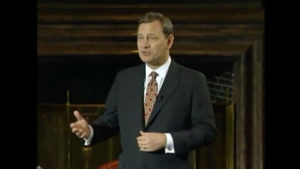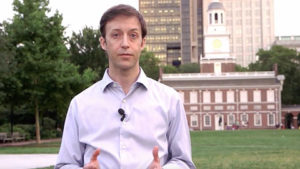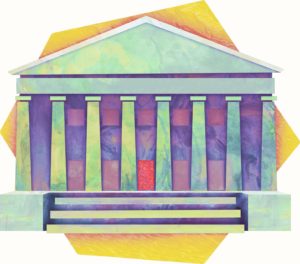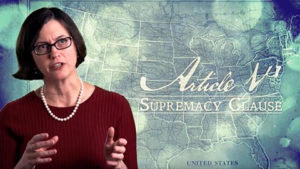Chief Justice John G. Roberts Jr. and a group of students discuss the U.S. Supreme Court: its history and evolution; how the justices select, hear and decide cases; and the role of an independent judiciary and other issues crucial to a healthy democracy today.



